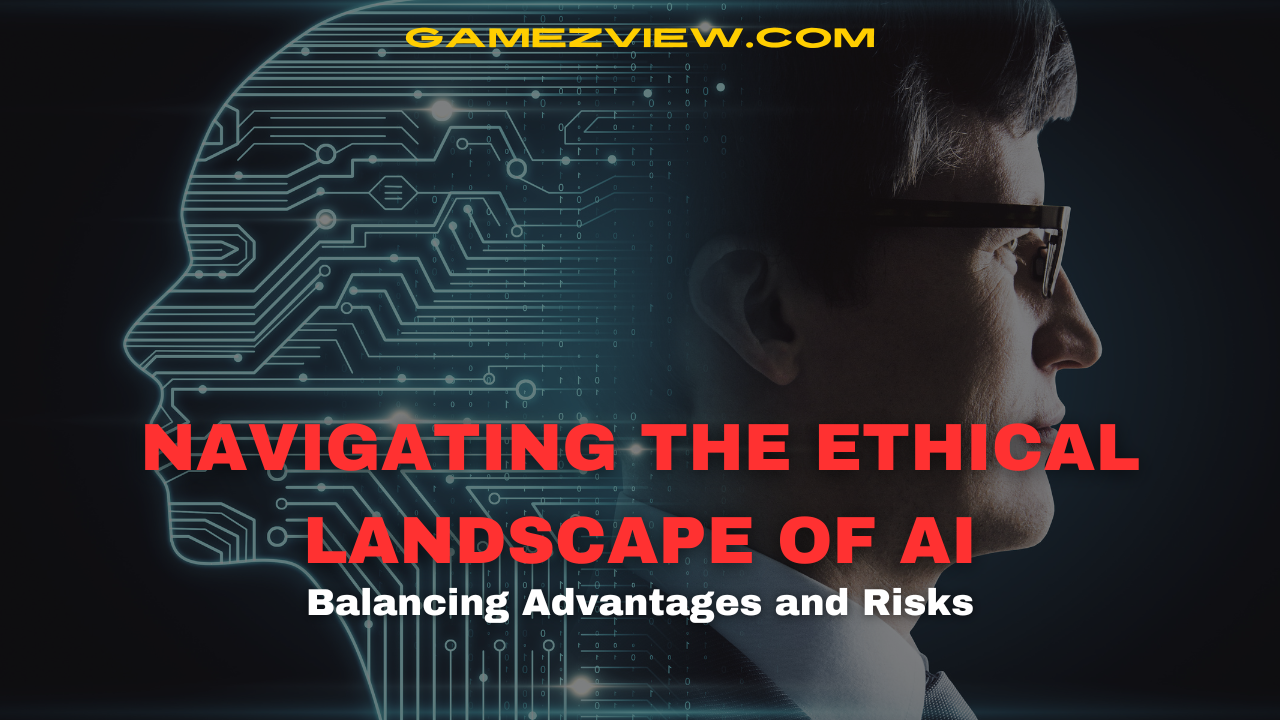Artificial Intelligence (AI) has rapidly become an integral part of our modern world, influencing various aspects of society, from healthcare and finance to transportation and entertainment. While AI presents numerous advantages and opportunities for innovation, it also raises significant ethical concerns and risks that must be carefully navigated. In this article, we explore the ethical dimensions of AI, highlighting both its advantages and the risks associated with its proliferation.
Advantages of AI
1. Efficiency and Productivity
One of the primary advantages of AI is its ability to enhance efficiency and productivity across industries. AI-driven automation streamlines repetitive tasks, allowing organizations to optimize workflows, reduce operational costs, and allocate human resources more strategically. From data processing and analysis to customer service and logistics, AI-powered technologies enable businesses to achieve greater efficiency and competitiveness in today’s fast-paced digital economy.
2. Innovation and Creativity
AI catalyzes innovation and creativity, unlocking new possibilities and driving transformative change in various fields. Machine learning algorithms can analyze vast amounts of data, identify patterns, and generate insights that human analysts may overlook, leading to novel solutions and breakthrough discoveries. Whether it’s designing innovative products, optimizing processes, or developing new business models, AI empowers organizations to push the boundaries of what’s possible and stay ahead of the curve in a rapidly evolving landscape.
3. Personalization and Customization
AI enables personalized and customized experiences tailored to individual preferences, behaviours, and needs. From recommendation engines and virtual assistants to personalized marketing campaigns and healthcare interventions, AI-driven technologies deliver tailored content, services, and recommendations that resonate with users on a deeper level. This not only enhances user satisfaction and engagement but also fosters stronger relationships and brand loyalty over time.
Risks of AI
1. Bias and Discrimination
One of the most significant ethical concerns surrounding AI is the potential for bias and discrimination in decision-making processes. AI algorithms are trained on historical data, which may reflect existing biases and inequalities present in society. As a result, AI systems may inadvertently perpetuate or amplify biases related to race, gender, ethnicity, or socioeconomic status, leading to unfair or discriminatory outcomes in areas such as hiring, lending, policing, and healthcare. Addressing algorithmic bias requires proactive measures, including data de-biasing, algorithmic transparency, and diversity in AI development teams.
2. Privacy and Surveillance
The widespread adoption of AI-powered technologies raises concerns about privacy and surveillance, as these systems collect and analyze vast amounts of personal data without explicit consent or oversight. From facial recognition and location tracking to predictive analytics and behavioural profiling, AI-driven surveillance technologies pose risks to individual privacy, autonomy, and civil liberties. Striking a balance between security and privacy is essential to safeguarding fundamental rights and freedoms in an increasingly digitized and interconnected world.
3. Job Displacement and Economic Inequality
AI-driven automation has the potential to disrupt labour markets and exacerbate economic inequality by displacing workers and concentrating wealth in the hands of a few. While AI creates new job opportunities in emerging fields such as data science, machine learning, and AI ethics, it also renders many traditional roles obsolete, particularly those involving routine, repetitive tasks. Addressing the socioeconomic implications of AI requires proactive measures, including upskilling and reskilling programs, social safety nets, and policies to promote inclusive growth and equitable distribution of benefits.
The ethical dimensions of AI are complex and multifaceted, encompassing both its advantages and risks. While AI offers tremendous potential to drive efficiency, innovation, and personalization across various domains, it also presents ethical challenges related to bias, privacy, and socioeconomic impact. Navigating the ethical landscape of AI requires a holistic approach that balances technological advancement with ethical considerations, human values, and societal welfare. By fostering dialogue, collaboration, and responsible innovation, we can harness the transformative power of AI for the benefit of all.



